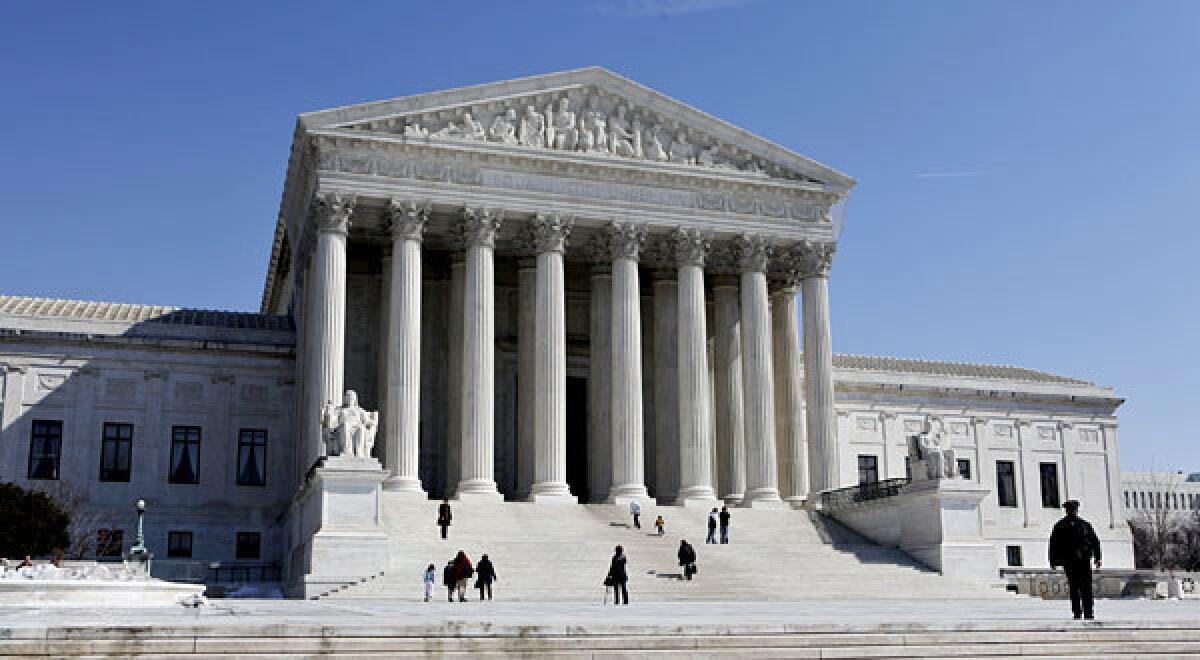Supreme Court issues major copyright ruling on foreign sales

WASHINGTON -- The Supreme Court, in a major ruling on copyright law, has given foreign buyers of textbooks, movies and other products a right to resell them in the United States without the permission of the copyright owner.
The 6-3 decision is a victory for a former USC student from Thailand, Supap Kirtsaeng, who figured he could earn money by buying textbooks at lower costs in his native country and selling them in the United States.
He was sued by publisher John Wiley & Sons for violating its copyright protection. A jury in New York agreed with the publisher, and the former student was assessed damages of $600,000 for willfully violating the company’s copyrights.
But the Supreme Court reversed that judgment today in Kirtsaeng vs. John Wiley and ruled the student had the better interpretation of the law.
The decision helps book buyers and merchants who resell goods purchased abroad, but it could prove to be a setback for American companies that sell copyrighted goods overseas.
Until now, these U.S. copyright holders have maintained that they can sell copyrighted works abroad -- and sometimes, at much lower prices -- and prevent them from being re-imported for sale in this country without their permission.
But the justices decided Tuesday that the holders’ rights expire when their copyrighted product is lawfully sold overseas. Under the so-called “first sale” doctrine, a copyright holder has a right to profit from the first sale of a book, but not its resale.
Justice Stephen Breyer noted the textbooks at issue were lawfully made overseas with the permission of the copyright owner. They were not pirated copies. In that instance, the “first sale” doctrine applies, he said, so that buyer was free to resell the books he had lawfully purchased.
Justices Ruth Bader Ginsburg, Antonin Scalia and Anthony Kennedy dissented.
ALSO:
Seven Marines killed in Nevada training explosion
Florida student may have planned attack before suicide
FBI says it knows who pulled off unsolved 1990 Boston art theft
More to Read
Sign up for Essential California
The most important California stories and recommendations in your inbox every morning.
You may occasionally receive promotional content from the Los Angeles Times.










